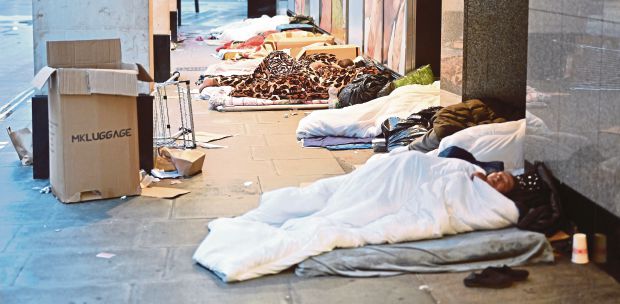THE dream of making it big in Canada is turning into a battle for survival for many immigrants due to the high cost of living and rental shortages, as rising emigration numbers hint at newcomers being forced to turn their back on a country that they chose to make their adopted home.
Prime Minister Justin Trudeau has made immigration his main weapon to blunt Canada's big challenge of an ageing and slowing population, and it has also helped fuel economic growth. That drove Canada's population up at its fastest clip in more than six decades this year, Statistics Canada said.
But now, a reversal of that trend is gradually taking hold. In the first six months of 2023, some 42,000 individuals departed Canada, adding to 93,818 people who left in 2022 and 85,927 exits in 2021, official data show.
The rate of immigrants leaving Canada hit a two-decade high in 2019, according to a recent report from the Institute for Canadian Citizenship (ICC), an immigration advocacy group. While the numbers went down during Covid-19 pandemic lockdowns, Statistics Canada data shows it is once again rising.
While that is a fraction of the 263,000 who came to the country over the same period, a steady rise in emigration is making some observers wary.
For a nation built on immigrants, a rising trend of people leaving Canada risks undermining one of Trudeau government's signature policies, which granted permanent residency to a record 2.5 million people in just eight years.
Reuters spoke with half a dozen people who have either left the country or are preparing to do so, because of the high cost of living.
Cara, 25, who came to Canada in 2022 as a refugee from Hong Kong, now pays C$650 in monthly rent for a single-room basement apartment in Scarborough in eastern Toronto, which is about 30 per cent of her monthly take-home salary.
"I never realised that living in a Western country, you can only afford renting a room in the basement," she said. She declined to give her real name because she fled Hong Kong after participating in the 2019 protests triggered by a now-abandoned extradition bill.
Cara works three part-time jobs, making Ontario's minimum wage of C$16.55 per hour, and goes to an adult learning school to earn university credits.
"I almost use every single penny," she said, adding that while in Hong Kong she could save about a third of her monthly salary.
To be sure, emigration as a percentage of Canada's overall population touched a high of 0.2 per cent in the mid-1990s, and currently stands at about 0.09 per cent, according to official government data.
While the numbers are small now, lawyers and immigration consultants warn that a pick-up could cast a shroud over Canada's appeal as the one of the favoured destinations for newcomers.
"There's a real importance in creating positive experiences in those early years" so that people decide to stay, ICC chief executive officer Daniel Bernhard said.
Immigrants blame the sky-rocketing housing costs as the biggest reason for their decision to consider a new country.
On average in Canada, about 60 per cent of household income would be needed to cover home ownership costs, a figure that rises to about 98 per cent for Vancouver and 80 per cent for Toronto, RBC said in a September report.
Myo Maung, 55, migrated to Canada from Myanmar over three decades ago and made a successful career as a real estate agent and a restaurateur. But he plans to retire in a country like Thailand since he cannot see himself maintaining his living standard in Canada on his retirement income.
Phil Triadafilopoulos, a political science professor specialising in immigration at the University of Toronto, said rapid immigration was exacerbating the housing shortage.
"It's not surprising then that people who have options... either go to another country or go back home having had a taste of the situation in Canada."
Last month, Trudeau's government capped its target for new residents at a half million per year from 2025 onwards to ease pressure on the housing market.
The writer is from Reuters





